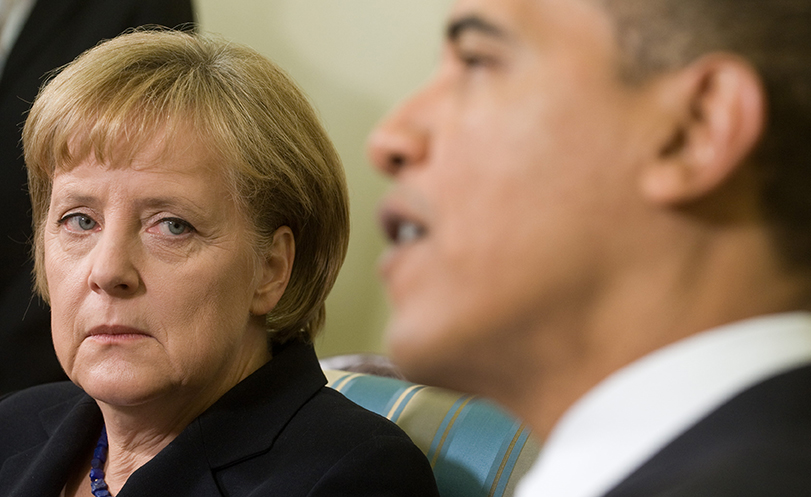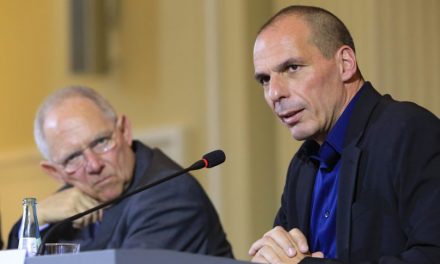– The Washington Times
German Chancellor Angela Merkel gave no sign Monday she’s ready to ease the hard line she has taken with the new government in Greece over its financial crisis, saying the austerity package her government has demanded remains the “basis of any discussion we have” with Athens over a new bailout.
Mrs. Merkel, appearing with President Obama at a White House press conference, said Berlin still supported keeping Greece in the 19-country eurozone, but stood strongly behind the program of spending cuts and structural reforms being demanded by the “Troika” — the European Commission, the European Central Bank and the International Monetary Fund — that has been repudiated by the new leftist Greek government of Prime Minister Alexis Tsipras.
Greek officials say they can never achieve the economic growth needed to pay off the country’s debts with the austerity program, but Mrs. Merkel pointedly noted other European Union countries that, she said, had successfully adopted the painful reform measures now being rejected by Athens.
“We have countries who are now back on the growth path,” Mrs. Merkel said, speaking through a translator. “Ireland comes to mind here in particular, but also Spain and Portugal. After a strong phase of structural reforms, they have now made significant progress.”
The German-Greek clash may come to a head on Wednesday at a hastily-called meeting of eurozone financial ministers in Brussels Wednesday. Mr. Tsipras and new Greek Finance Minister Yanis Varoufakis have insisted in recent days that they will demand a re-writing of the $270 billion bailout package on offer from the Troika, a package Mr. Varoufakis denounced as a “toxic fantasy” in remarks to the Greek parliament Monday.
“At some point, someone has to say ‘No’ and that role has fallen to us, little Greece,” the minister said.
The uncertainty has created deep unease across the EU, with the possibility that Greece may abandon the euro altogether, with hard-to-predict consequences.
Stock markets across Europe fell Monday, with the Greek stock market losing another 4.75 percent of its value and the yield on its three-year government debt rising to an astronomical 18 percent.
Mr. Obama did not address the Greek crisis in depth during his joint appearance with Mrs. Merkel, saying only that he wanted to hear Mrs. Merkel’s assessment “of how Europe and the IMF can work with the new Greek government to find a way that returns Greece to sustainable growth within the Eurozone.” But many in the Obama administration sympathize with Greece’s argument that the country can never repay its crushing debts under the current austerity program. Greece is now in the sixth year of a recession that has savaged the country’s social safety net and left unemployment at depression-era levels of nearly 26 percent.
Slow growth rates and the weak euro are also starting to drag down U.S. companies as well, with many reporting weaker earnings in recent quarters in part because of the lack of demand in Europe.
Treasury Secretary Jack Lew, in an interview aired on CNBC Monday, said both sides need to step back from the brink and seek a compromise.
“I think what has to happen is for everybody to tamp down the rhetoric a little bit” and seek a “pragmatic, practical path forward,” Mr. Lew said.
Mr. Tsipras and Mr. Varoufakis have found little sympathy in the major European capitals seeking a renegotiation of the bailout deal since the stunning triumph of the Syriza Party in elections Jan. 25. Mr. Tsipras was in Austria Monday, where Chancellor Werner Faymann said his top priority was to keep the euro bloc together.
“Let me make very clear that there’s unity about our goal can only be that all members of the eurozone stay members of the eurozone this year and next year and for the coming years,” Mr. Faymann said.



















